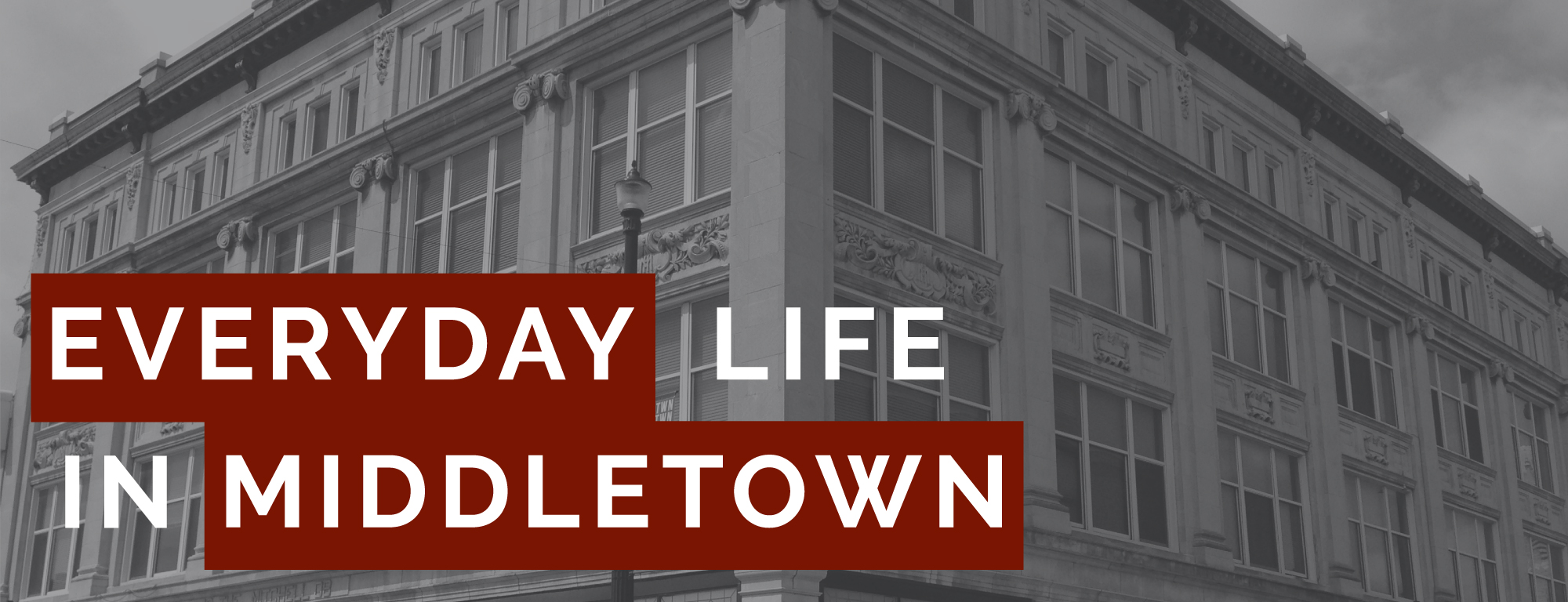We’ve written about the pandemic and its impact on how we experience time before (see here, here and here). Now we’ve put those ideas together in a longer form. EDLM project directors Patrick Collier and James Connolly have published a new article on this theme, entitled “Time Shifts: Place, Belonging, and Future Orientation in Pandemic Everyday Life.” It appears in the April, 2023 issue of the History of the Human Sciences as part of a special issue on “Archiving the Covid-19 pandemic in Mass Observation and Middletown.” We’re excited to contribute an essay to this issue, which originated out of a year-long remote seminar organized by Nick Clarke and late Clive Barnett. We wrote about our contribution to the seminar, which formed the basis for our new article, in an October, 2021 blog entry.)
“Time Shifts” looks at the way that contributors to EDLM wrote about the future and how pandemic conditions—working and learning from home, canceling plans, dodging public places, worrying about infection, and other upsets—scrambled our sense of time at the moment and obscured longer-term horizons. We also try to weigh the role of place in the accounts of daily life that our volunteers have provided. As we see it, a narrative of economic decline and hoped-for revitalization that attaches to a Rust-Belt city such as Muncie has shaped the way many EDLM writers imagined both personal and collective futures in the context of Covid-19. As the pandemic fades from public discussion (see our most recent blog entry), it’s unclear whether these shifts in the way we contemplate the future will persist or if old patterns will reassert themselves. Maybe we will come back to that point—stay tuned.
You can find the article here, and when you do, take a moment to check out the other contributions to the special issue. In “Seeing like and epidemiologist,” Nick and Clive write about how the pandemic thrust science into daily life and conversation. Dawn Lyon and Rebecca Coleman use the Mass Observation archive to offer an analysis of the ways that the pandemic disrupted everyday rhythms and routines, one that intersects with our EDLM essay in interesting ways. And Annabella Pollen explores how visual representations and imaginaries figured in accounts of pandemic experiences collected in the Mass Observation Archive. Together, these pieces offer a demonstration of how collaborative projects that focus on the small details of everyday life can help us understand big developments such as the Covid-19 pandemic.

